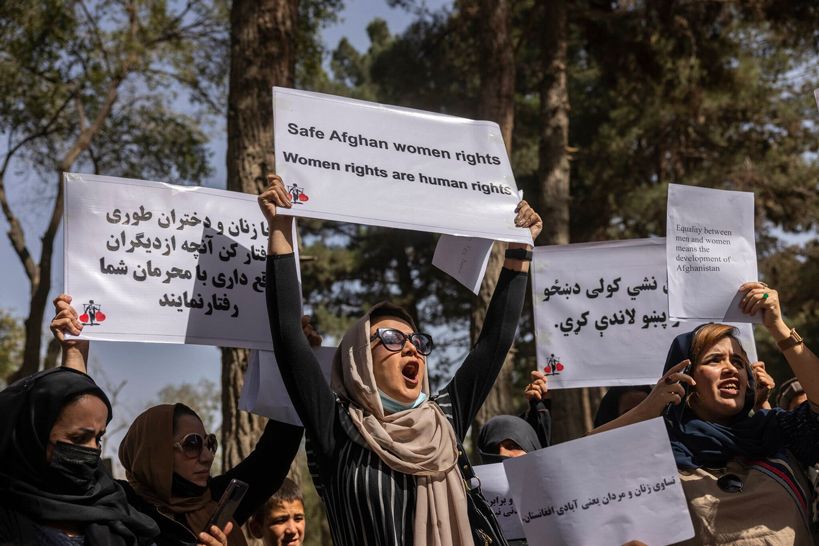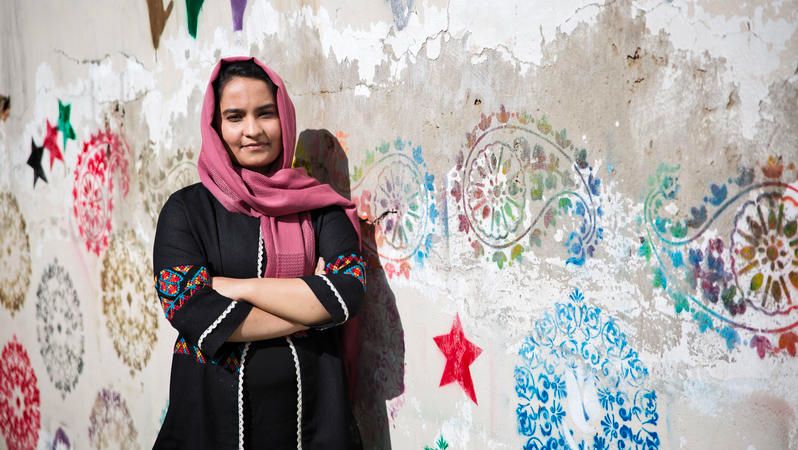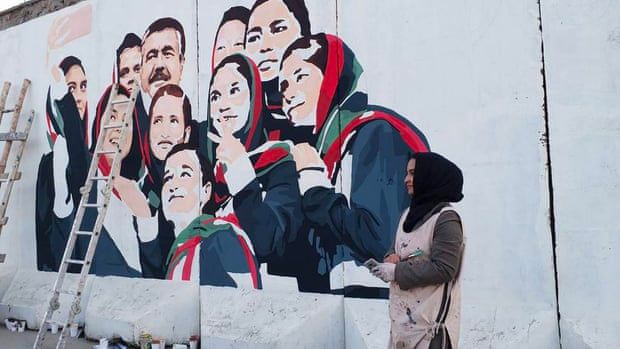Months on, and the atmosphere in Afghanistan remains strangely oppressive, the streets littered with the brutal remnants left behind in the aftermath of Taliban takeover. The air vibrates uncertainty, and the dismissal of female workers and women’s rights adds to the already precarious situation. All this, however, doesn't go unnoticed within the European Commission, where arrangements have been agreed upon to help turn over a new leaf and allow the country to avoid a humanitarian and economic crisis.
Since the takeover, activists, artists and diplomats have fought relentlessly to bring the situation of women to the spotlight, creating measurements that somehow reconnect the women living in the country with normality. One of these measures is to reinstate women's education and open the door for humanitarian aid and Western funds.

On a positive note, Zabihullah Mujahid, a spokesman for Afghanistan’s government and deputy minister of culture and information, recently told the press that girls’ schools all across the country will reopen by late March. The delay in giving a timeline seems to be a matter of capacity, not reason. The reopening of schools and colleges lies in the institutions capacity to segregate genders and provide single-gender classrooms — a demand that universities and high schools are unable to deliver.
Despite the later oppressive and authoritarian Taliban government, the new regime has not as sharply curtailed girls’ education, but the searing aggression by Taliban gunmen regarding women's public lives and education has taken its toll on career perspectives for young women.
In Oslo this week, the Norway meeting between the U.S, European diplomats, the Taliban, aid organizations and Afghan civil society groups discussed a way forward and pressured the Taliban diplomats on human rights and girls’ education. As the country's future is hanging by a thread, Western diplomats agree upon expanding the Afghan relief operation as a way to prevent the upcoming humanitarian crisis.

On the artistic front, collectives and individuals are showing that art also has a role in the fight for women's liberation. Negina Azimi, now a refugee in Albania, is an outspoken female artist in Afghanistan, whose practice features messages about women's empowerment and resilience, thus addressing the United Nations Sustainable Development Goal for Gender Equality and Quality Education.
“When the Taliban entered Kabul, I rushed home to remove my paintings from the walls. My father and I removed each piece from its frame, rolled it and stashed it away where no one could find them,” the artist states. “We used to receive threats from the Taliban because many of our paintings portray faces — which the Taliban are strongly against.”
In the aftermath of the Taliban takeover, stashing away her paintings was not all the artist had to do. As part of the collective ArtLord, Azimi had most of her work spread in walls across the city, meaning she had to flee the country as the Taliban destroyed or painted over her murals and threatened her well being. Yet, her story didn’t end here.
Like most of the ArtLord collective, Azimi continues to produce impactful work on the streets of Tirana, the Albanian capital. One of Azimi´s most recent works bears the symbology and the identity of Afghan women. The mural is a painting of a woman wearing a scarf while carrying an enlarged heart above her head, a testimony of the social burden women of Afghanistan have to face for their country.

Even though most artists who worked relentlessly to revive the Afghan art scene had to evacuate and exile in refugee camps across Europe, they still are the embodiment of hope for Afghanistan, giving voice to the injustices faced daily in their homeland. See more of Negina Azimi’s work here and join her in this continuous fight against oppression by being part of the conversion and the movement forward.
